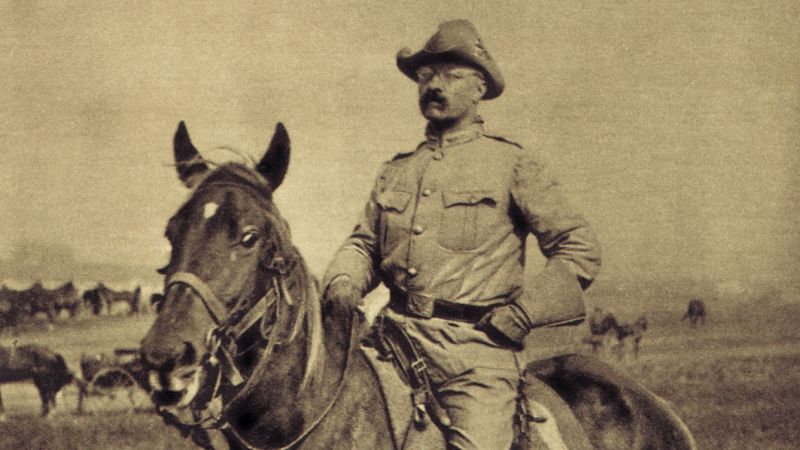Theodore Roosevelt, a man known for his rugged manliness and his prominent place in American history, is often portrayed as a larger-than-life figure who achieved incredible success through his own willpower. However, a new biography by Edward O’Keefe, “The Loves of Theodore Roosevelt: The Women Who Created a President,” argues that the women in Roosevelt’s life played a significant role in his success and have been largely overlooked by history. O’Keefe conducted detailed research to shed light on the stories of Roosevelt’s two sisters, two wives, and mother, who were integral to his personal and political achievements.
While Roosevelt is celebrated for his masculinity and populist ideals, the book highlights the often overlooked theme of gender inequality during his time. Despite being born into wealth, Roosevelt challenged the norm for someone of his status and wealth to run for office. He felt a sense of noblesse oblige, believing that those who had much were required to give back to society. His experiences in the Badlands of North Dakota, where he had to work alongside others regardless of wealth, influenced his views on inequality and social responsibility.
A poignant moment in Roosevelt’s life was the tragic deaths of his first wife during childbirth and his mother on the same day, an event that shaped his outlook on life and purpose. O’Keefe draws parallels to current President Joe Biden’s losses, suggesting that individual hardships often serve as crucibles that shape a person’s character. Loss and fate play a significant role in the lives of influential figures, affecting not just their personal trajectory but also the fate of the nation.
Roosevelt’s complex character also involved moments of emotional depth and vulnerability that are often overlooked in historical caricatures. His relationships with women, especially his wife and mother, showcase a softer side to his personality. O’Keefe challenges the traditional view of Roosevelt as the epitome of manhood, revealing a more nuanced portrait of a man who relied on the support and emotional strength of the women in his life.
The book also explores the intersections of masculinity, gender roles, and societal expectations, drawing parallels to modern discussions on these topics. As Roosevelt navigated a changing society at the turn of the 20th century, grappling with technology, immigration, and America’s role in the world, he also confronted questions of masculinity and manhood. O’Keefe suggests that current debates on these issues echo those of the past, emphasizing the importance of viewing historical figures in a nuanced light.
Through compelling anecdotes and insights, “The Loves of Theodore Roosevelt” offers a fresh perspective on a prominent historical figure, showcasing the significant impact of the women in his life on his personal and political achievements. By delving into the untold stories of Roosevelt’s female relatives, O’Keefe paints a more complete portrait of a man who, despite his public persona as a rugged cowboy, was deeply influenced by the women who surrounded him. The book provides a fascinating exploration of masculinity, power dynamics, and personal relationships that continue to resonate in today’s society.


